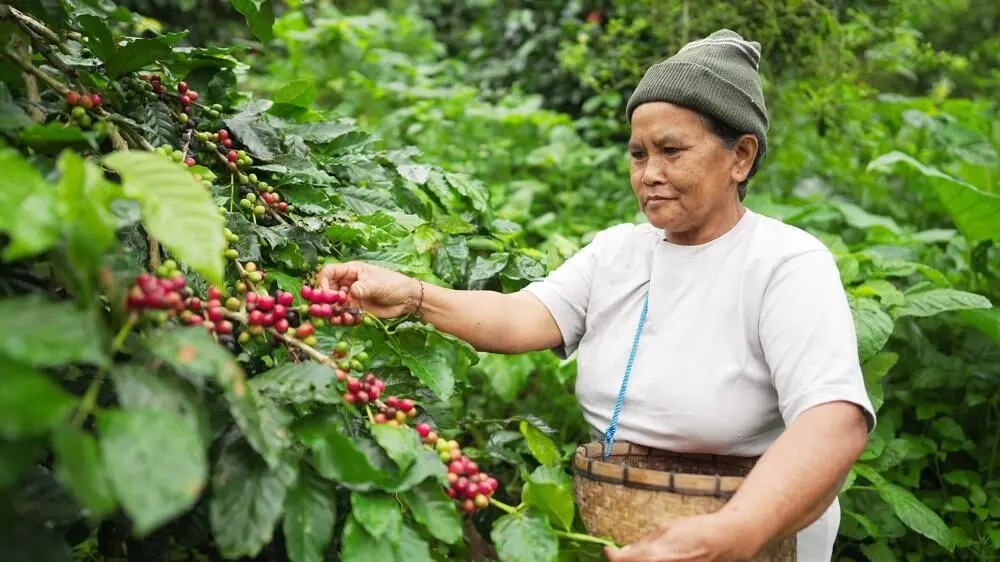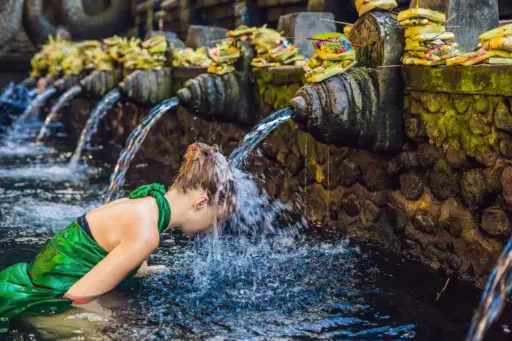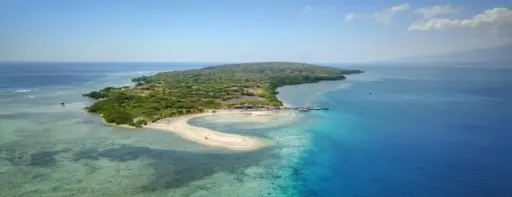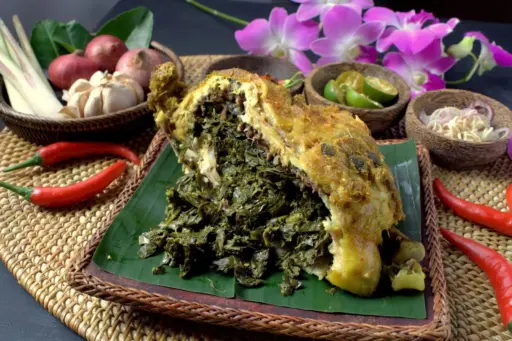BALI’S LOVE AFFAIR WITH COFFEE
Coffee in Bali is more than a morning ritual – it is a thread woven through the island’s culture, history, and economy. For generations, Balinese farmers have cultivated coffee in fertile volcanic soils, producing beans with distinctive flavours shaped by altitude, climate, and tradition.
Today, Bali’s coffee culture spans from the humble roadside warung serving strong, sweet kopi Bali to sleek, specialty cafés in Seminyak, Canggu, and Ubud that rival any in Melbourne or London. Whether you are a casual coffee drinker or a full-fledged enthusiast, Bali offers an array of experiences that combine flavour, culture, and scenery.
THE ORIGINS OF BALI COFFEE
Coffee arrived in Indonesia in the late 1600s via Dutch traders, with initial plantations on Java. It was only later that coffee took root in Bali, particularly in the highland regions of Kintamani, Munduk, and Batukaru.
Most Balinese coffee is arabica, grown at elevations between 1,000 and 1,500 metres. These beans often carry citrus and chocolate notes, a result of the island’s mineral-rich volcanic soil. In some areas, farmers intercrop coffee with citrus trees, giving the beans subtle fruity tones.
TRADITIONAL BALINESE COFFEE STYLES
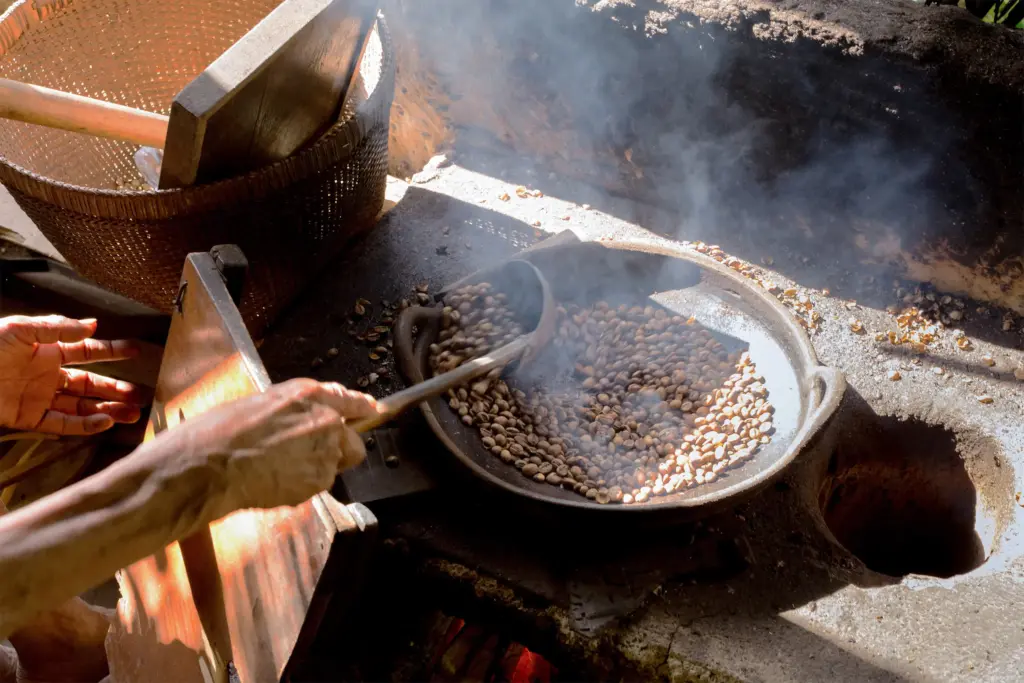
Kopi Bali (Balinese Coffee)
The classic way coffee is served in Bali is simple: coarsely ground beans brewed directly in boiling water, then poured into a glass. No filter. The grounds settle at the bottom, and you sip carefully from the top.
Kopi Bali is strong, earthy, and often sweetened with palm sugar. You will find it in village kitchens, roadside warungs, and markets across the island.
Kopi Tubruk
Similar to kopi Bali but slightly thicker and richer, kopi tubruk is common in Java and Bali. The grounds are boiled with sugar, creating a sweet, syrupy brew. It is rustic, unfussy, and best enjoyed slowly.
Kopi Luwak
Perhaps the most controversial coffee in the world, kopi luwak is made from beans that have passed through the digestive system of the Asian palm civet. While some travellers seek it out for novelty, ethical concerns over the treatment of captive civets mean it is best to only try kopi luwak from certified wild-sourced farms.
COFFEE-GROWING REGIONS IN BALI
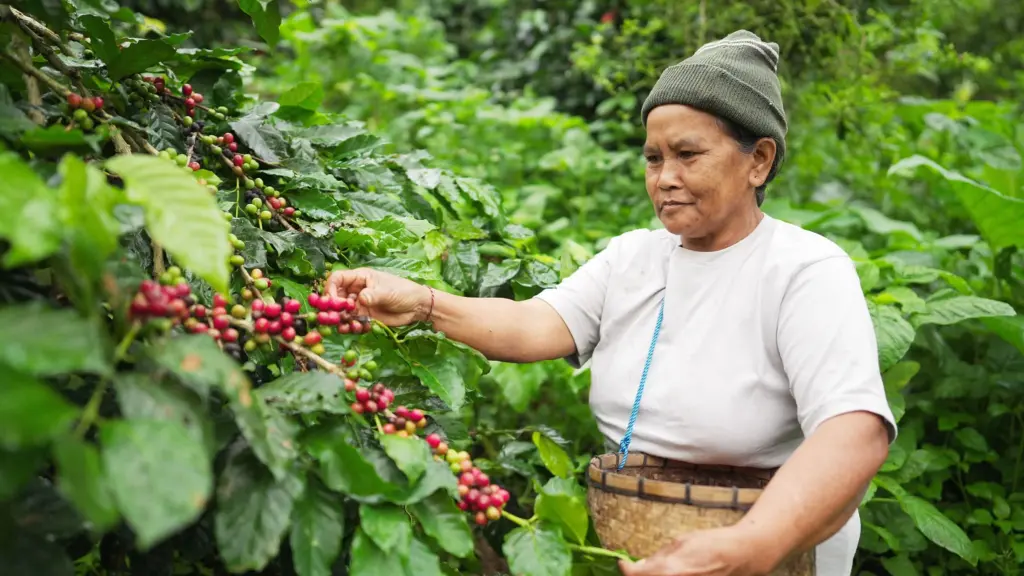
Kintamani Highlands
The most famous coffee region in Bali, Kintamani’s plantations lie on the slopes of Mount Batur. The climate here is cool, with rich volcanic soil producing beans with bright acidity and citrus notes.
Many Kintamani farms are part of cooperatives that follow traditional subak abian farming systems – a sustainable, community-based approach linked to the island’s spiritual philosophy.
Munduk
A former Dutch colonial plantation area in North Bali, Munduk is dotted with smallholder farms and eco-lodges where guests can watch beans being picked, dried, and roasted. Munduk coffee tends to be smooth with mild acidity.
Batukaru Region
On the western slopes of Mount Batukaru, smaller-scale plantations grow both arabica and robusta. The area is less touristed, making for a more intimate plantation visit.
BEST COFFEE EXPERIENCES FOR TRAVELLERS
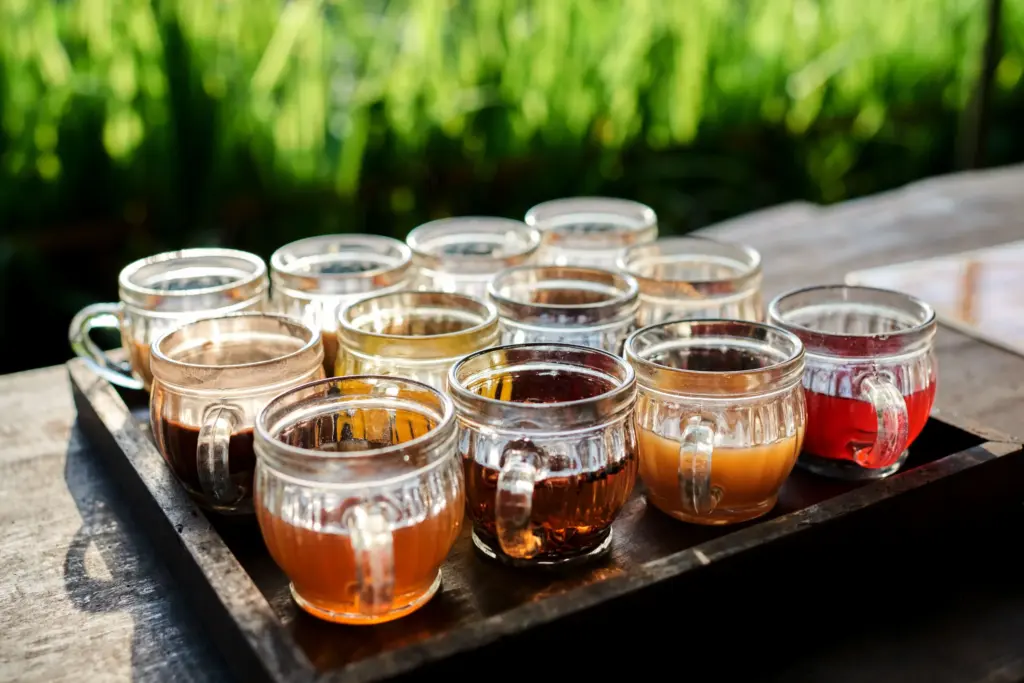
Plantation Tours and Tastings
Visiting a coffee farm lets you see the process from bean to cup. Most tours include:
· A walk through coffee trees (often alongside cloves, cacao, or spices).
· Demonstrations of harvesting, drying, and roasting.
· Tasting sessions of different brews, sometimes with panoramic views.
Areas and places worth checking out for coffee tastings include:
· Bali Pulina Agro Tourism (near Ubud)
· Munduk Moding Plantation (Munduk)
· Small family farms in Kintamani village
Coffee Roasting Workshops
Several cafés in Ubud and Canggu run roasting and brewing classes. You can learn about roast levels, grind size, and brewing methods like V60, French press, and espresso. This is a great way to take home skills along with your beans.
Coffee and Cycling Tours
In the highlands of Kintamani and around Lake Batur, guided cycling tours combine coffee plantation visits with scenic rides past temples, rice terraces, and traditional villages.
Temple and Coffee Pairings
Some plantation tours in the Batukaru area include visits to nearby temples, blending culture, spirituality, and coffee in one trip.
THE RISE OF SPECIALTY COFFEE IN BALI
Over the past decade, Bali has developed a vibrant specialty coffee scene. Expats, local entrepreneurs, and returning Balinese baristas trained abroad have opened cafés that focus on single-origin beans, precision brewing, and café culture. Some to try include:
Seminyak
· Revolver Espresso: One of the pioneers of Bali’s modern coffee movement.
· Coffee Cartel: Known for pink lattes and strong flat whites.
Canggu
· Hungry Bird: A local favourite, famous for its competition-winning barista.
· BGS Coffee Bar: Surf meets specialty coffee.
Ubud
· Seniman Coffee Studio: Offers brewing workshops and an ever-changing single-origin menu.
· F.R.E.A.K. Coffee: Focuses on organic Kintamani beans.
SUSTAINABLE AND ETHICAL COFFEE IN BALI
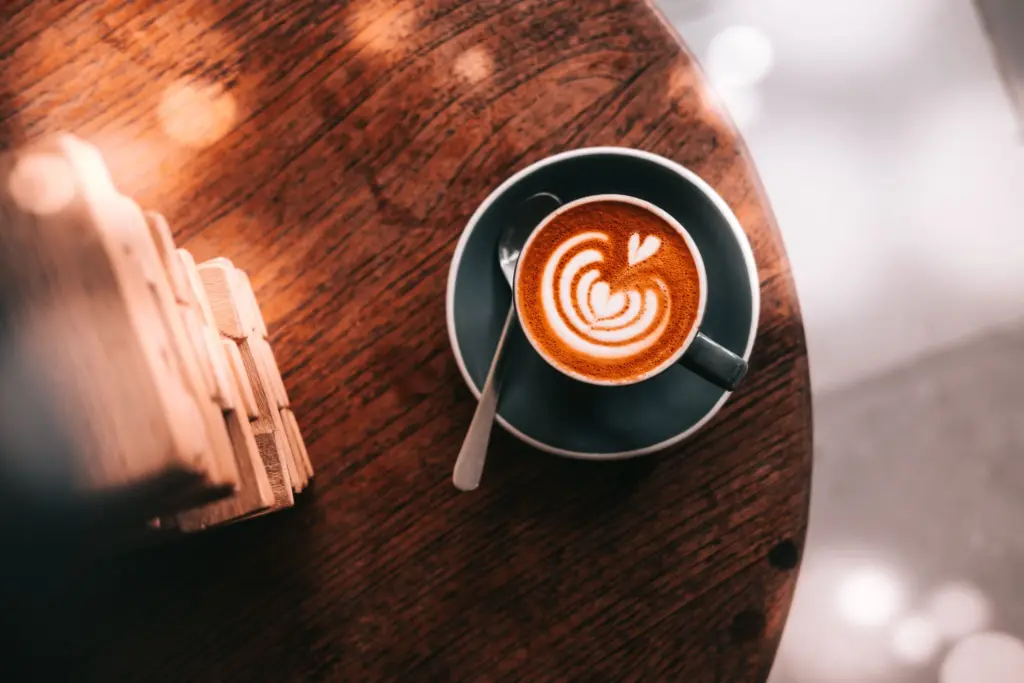
Sustainability is becoming increasingly important in Bali’s coffee industry. Look for:
· Shade-grown coffee that protects biodiversity.
· Direct trade beans that pay farmers fair prices.
· Cafés and roasters that avoid single-use plastics.
Some cooperatives, like the Subak Abian Kintamani group, are certified organic and Rainforest Alliance approved.
TIPS FOR BUYING COFFEE TO TAKE HOME
· Choose whole beans for freshness, unless you lack a grinder.
· Ask about roast date – fresher is better.
· Buy from reputable roasters or directly from plantations.
· Pack well – vacuum-sealed bags travel best.
COFFEE ETIQUETTE IN BALI
When offered coffee in a village setting, it is polite to accept at least a few sips. Coffee is often served alongside snacks like fried bananas or small cakes, and the sharing of coffee is a gesture of hospitality.
SUGGESTED COFFEE LOVER’S ITINERARY IN BALI
Day 1 – Ubud and Surrounds
· Morning at Seniman Coffee Studio.
· Plantation visit at Bali Pulina.
· Sunset coffee at a café overlooking Tegalalang rice terraces.
Day 2 – Kintamani Highlands
· Early drive to Kintamani for plantation tour.
· Coffee tasting with Mount Batur views.
· Lunch in a local warung.
· Optional cycling tour.
Day 3 – Canggu and Seminyak
· Café hop through top specialty spots.
· Attend a latte art or roasting workshop.
· End the day with coffee cocktails.
Bali’s coffee culture is a journey in itself – from rustic village brews sipped at sunrise to expertly pulled espressos in chic coastal cafés. Each cup tells a story, whether it is about the volcanic soil of Kintamani, the centuries-old farming methods in Munduk, or the creativity of Bali’s modern baristas.
For travellers, diving into this world offers not just a caffeine boost, but a deeper connection to the island’s land, people, and evolving food scene. Wander Beyond Ordinary!
